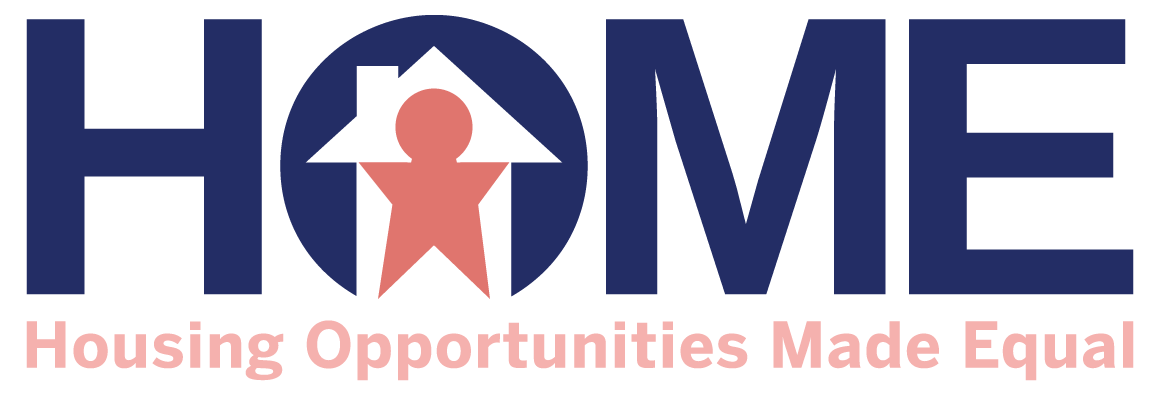HOME is the only fair housing agency in WNY to assist both landlords and tenants. We provide fair housing landlord trainings/certifications, field questions from landlords, and offer materials such as our “Choosing Good Tenants” brochure and A Guide to Landlords’ Rights.
Helpful Links
Homeowner Resources
FAQs
HOW CAN I AVOID PROBLEM TENANTS?
Your best defense is to properly screen applicants before renting to them and to get a security deposit prior to move-in. Check applicants’ income and references from prior landlords to ensure you are letting in a responsible tenant who will respect your property and make timely rent payments. It is also important to get a security deposit to protect yourself in case of unpaid rent or damages to your property. You can learn about best practices for screening applicants in A Guide to Landlords’ Rights.
DO LANDLORDS HAVE ANY RIGHTS?
Oftentimes, landlords feel that tenants hold the upper hand. In truth, there are laws and procedures that protect landlords as well. Landlords have the right to deny applicants who do not meet lawful criteria, such as insufficient income. Furthermore, tenants are required to uphold their responsibilities, such as respecting the property, neighbors, and paying the rent on time, or they can face eviction. Tenants should also give proper notice (a full rental period) before moving out, or they risk losing their security deposit.
DO FAIR HOUSING LAWS APPLY TO REAL ESTATE AGENTS AND LENDERS?
Yes. This extends to federal, state, and local laws.
DO I HAVE TO ACCEPT SECTION 8 TENANTS?
If you are renting out units anywhere in New York State, then you are not allowed to reject tenants on the basis of them receiving Section 8 Housing Choice Vouchers. State and local fair housing ordinances bar landlords from discriminating based on someone’s lawful source of income, which means if someone meets all your criteria as a good potential tenant and can afford the unit, you cannot deny them solely based on where their rent money is coming from.
HOW DOES SECTION 8 WORK?
Once voucher holders find a home, they fill out a short packet (called a Request for Tenancy Approval) with the landlord that includes basic details about the unit’s address, number of bedrooms, utilities, and rent amount. Homes are approved first based on affordability and rent reasonableness and then must pass an inspection by the voucher-issuing agency to ensure compliance with federal housing quality standards (HQS). You can learn more about the Section 8 program here or a more condensed explanation in A Guide to Landlords’ Rights.
WHAT ARE SOME LOCAL LAWS I SHOULD BE AWARE OF AS A HOUSING PROVIDER?
The City of Buffalo Fair Housing Ordinance bans discrimination based on source of income as well as gender identity and expression. It also requires all landlords in the City of Buffalo owning more than 20 rental units and all real estate offices in the City of Buffalo selling more than 20 residential housing accommodations in a calendar year to display the equal housing opportunity logotype or a statement of equal opportunity housing on their applications, marketing materials, website, and in their offices.
The Town of Hamburg Fair Housing Ordinance prohibits source of income discrimination, and it requires all housing providers and real estate brokers selling, renting, or managing more than 20 dwellings in a calendar year to formulate an Affirmative Fair Housing Marketing Plan, which must be filed with the Director of Community Development or his designee (Housing Opportunities Made Equal). The plans should include: (a) a statement of non-discrimination and (b) a marketing plan designed to attract a diverse pool of applicants. These providers and brokers are also required to use the equal opportunity logotype on applications and marketing materials and display either the logotype or a statement of nondiscrimination in their offices.
New York Real Property Law Article 7 deals with landlord and tenant rights. You can learn more about avoiding discriminatory practices through our landlord training and certification classes and in our Guide to Landlords’ Rights. See our landlord training page for more details.
WHAT IS FAIR HOUSING? WHO IS PROTECTED? WHAT CAN I DO TO HELP? FIND ANSWERS HERE!
(or read the full text of fair housing laws)
WHO IS PROTECTED?
Protected classes at the federal level:
Race
Color
Religion
Sex
Familial Status
National Origin
Disability
Protected classes in New York State include all of the above plus:
Military Status
Sexual Orientation
Age
Creed
Marital Status
Gender Identity
Source of Income
Immigration and Citizenship Status
WHAT DOES DISCRIMINATION LOOK LIKE?
Discrimination isn’t always obvious. Any of these actions could be discrimination if they happen because of a person’s membership in one of the groups above:
Refusal: refusing to rent to someone
Misrepresentation: lying about whether a property is rented or not
Inconsistent terms: different rules for different tenants
Advertisement: showing preference for or against a certain group in ads
Illegal inquiries: asking questions about protected classes
Steering: convincing someone to live in a certain area because of stereotypes or bias
Coercion: coercion, intimidation, threats, harassment
Refusing to make reasonable accommodations or modifications for people with disabilities.

